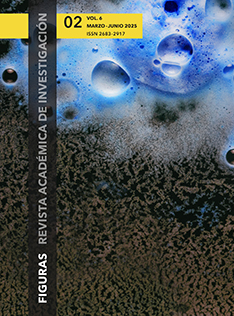Pandemics, Floods, and Giant Mosquitoes: Two Works of Latin American Climate Fiction
DOI:
https://doi.org/10.22201/fesa.26832917e.2025.6.2.408Keywords:
Climate fiction, Latin America, ecology, science fiction, Cli-fiAbstract
Although it is often considered a minor genre, science fiction is one of the literary genres with the greatest potential to address climate change. This essay argues that, in the face of the prevailing sense of helplessness today, speculative and fiction literature offers the possibility of imagining new ways of inhabiting our planet and building alternatives to the existing socio-economic model. Therefore, this essay analyzes two works of Latin American science fiction—Michel Nieva's novel La infancia del mundo and Andrea Chapela's short story "Como quien oye llover"—with the aim of studying how the climate crisis is addressed in contemporary literature from this region. These two works problematize the environmental crisis from an intersectional perspective, intertwining issues such as social class and gender. Thus, this essay reflects on the relationship between the climate crisis, capitalism, the notion of progress, and the way we imagine the future.Downloads
References
Benjamin, Walter. 2005. Tesis sobre la historia y otros fragmentos. Ciudad de México: Contrahistorias.
Chapela, Andrea. 2020. “Como quien oye llover.” En Ansibles, perfiladores y otras máquinas de ingenio. México: Almadía.
Evans, Rebecca. 2017. “Fantastic Futures? Cli-fi, Climate Justice, and Queer Futurity.” Resilience: A Journal of the Environmental Humanities 4, no. 2–3 (Spring-Fall): 94-110. https://doi.org/10.5250/resilience.4.2-3.0094 DOI: https://doi.org/10.5250/resilience.4.2-3.0094
Le Guin K. Úrsula. 2020. “Una guerra sin fin.” En Contar es escuchar, sobre la escritura, la lectura y la imaginación. Madrid: Círculo de Tiza.
Macón, Cecilia. 2024. “Todo verdor desaparecerá. Agencia, crisis y dengue en La infancia del mundo de Michel Nieva.” Latin American Literary Review 51, no.103 (Fall): 26–35. https://www.jstor.org/stable/48799296 DOI: https://doi.org/10.26824/lalr.489
Nieva, Michel. 2023. La infancia del mundo. Barcelona: Anagrama.
Tolkien, J.R.R. 2008. “On Fairy-stories.” In Verelyn Flieger y Douglas A. Anderson (eds.) Tolkien On Fairy-stories, 27-84. London: Harper Collins Publisher.
Downloads
-
Abstract 372
-
PDF (Spanish) 164
-
Visor XML (Spanish) 145
-
ePub (Spanish) 26
Published
Issue
Section
License
Copyright (c) 2025 Ariela Wolcovich-Konigsberg

This work is licensed under a Creative Commons Attribution-NonCommercial-ShareAlike 4.0 International License.
All works published in FIGURAS REVISTA ACADÉMICA DE INVESTIGACIÓN are subject to an Attribution-NonCommercial-ShareAlike 4.0 International license. Authors are owners of their articles and can republish them in other media, provided that they communicate it to the editors and indicate the texts were originally published in FIGURAS REVISTA ACADÉMICA DE INVESTIGACIÓN






















